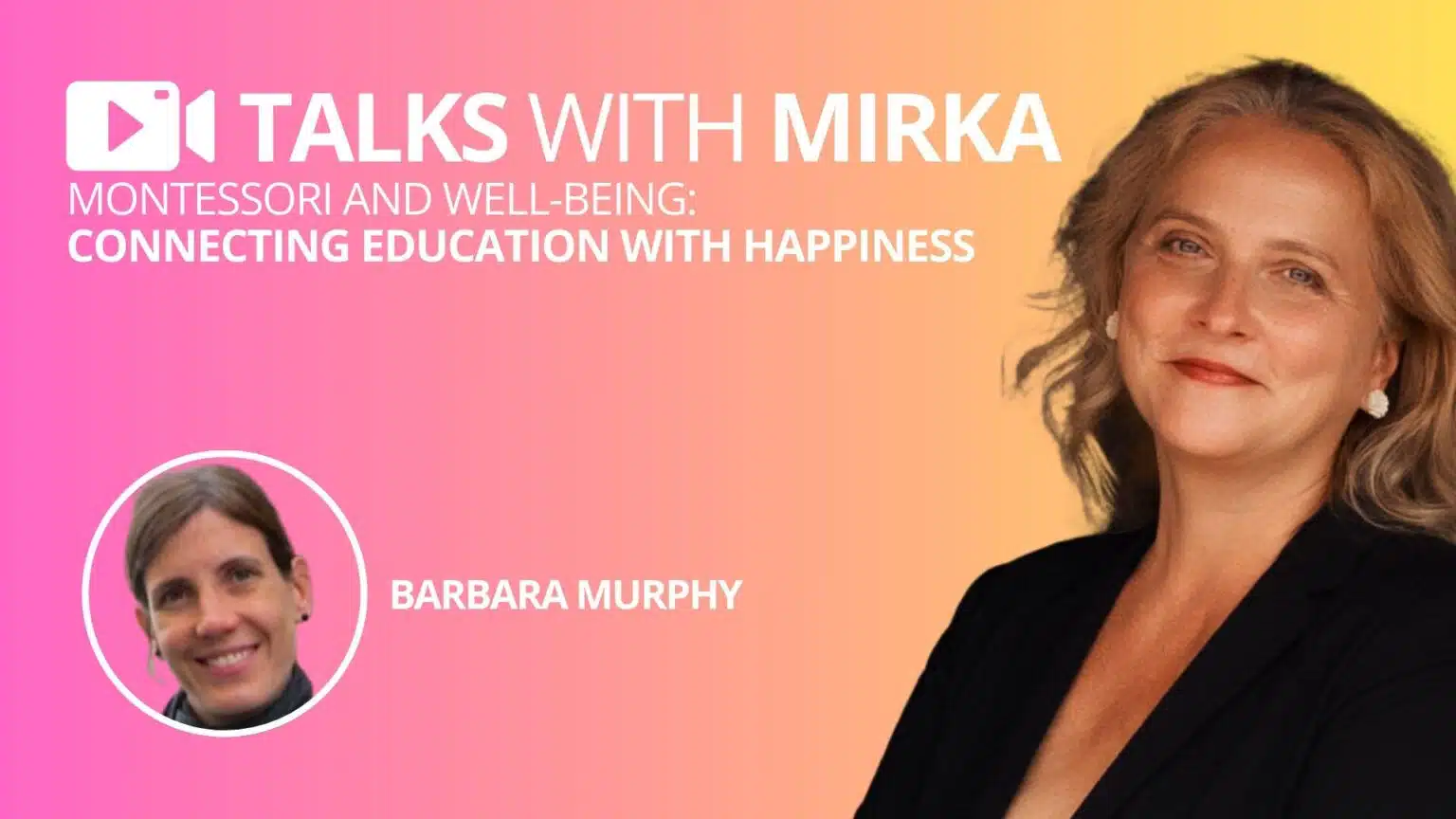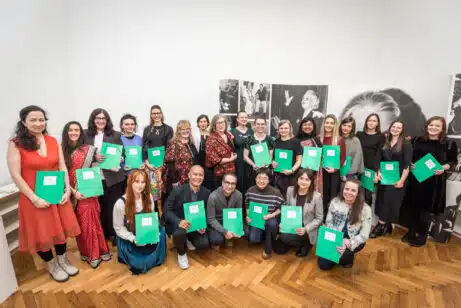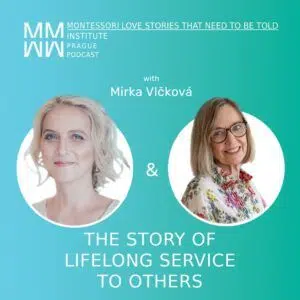Montessori and Well-Being: Connecting Education with Happiness

Montessori education isn’t just about children—it’s also about us. How do we balance what we do for others with what we need for our own peace and joy? Barbara Murphy, an expert on Montessori and well-being, discussed this in a recent conversation with Mirka.
The Montessori Principles That Foster Well-Being
Barbara highlighted how the core elements of Montessori education—movement, community, and prepared environments—are directly linked to personal happiness and balance:
- Movement: Purposeful physical activities not only enhance children’s focus and learning but also elevate mood and cognitive health in adults by stimulating positive brain chemistry. Movement is a universal tool for well-being.
- Community: The sense of belonging that Montessori environments cultivate echoes one of the most consistent findings in happiness research: strong relationships are essential for long-term well-being. Montessori classrooms emphasize collaboration, which nurtures joy for both children and adults.
- Prepared Environments: Carefully designed spaces promote calmness and curiosity. For educators and parents, these environments become places of refuge and inspiration, enabling moments of balance and mindfulness.
Why Self-Care Matters
Barbara introduced the concept of the “Pheidippides Paradox” as a metaphor for the burnout many educators face when they continuously give without replenishing themselves. She shared an important reminder: “If compassion doesn’t include yourself, it’s incomplete.” Prioritizing self-care—whether it’s taking time to rest, reflect, or move your body—is not selfish. Instead, it models healthy habits and resilience for the children watching you.
Montessori Educators as Leaders in Well-Being
Barbara believes Montessorians are uniquely positioned to lead the way in building healthier, more balanced communities. By blending the wisdom of Montessori with insights from modern happiness research, we can create environments that allow both children and adults to thrive.
Ready to dive deeper into how Montessori education can nurture your well-being? The full conversation with Barbara Murphy is available above—discover how you can create balance and joy in your daily life!




